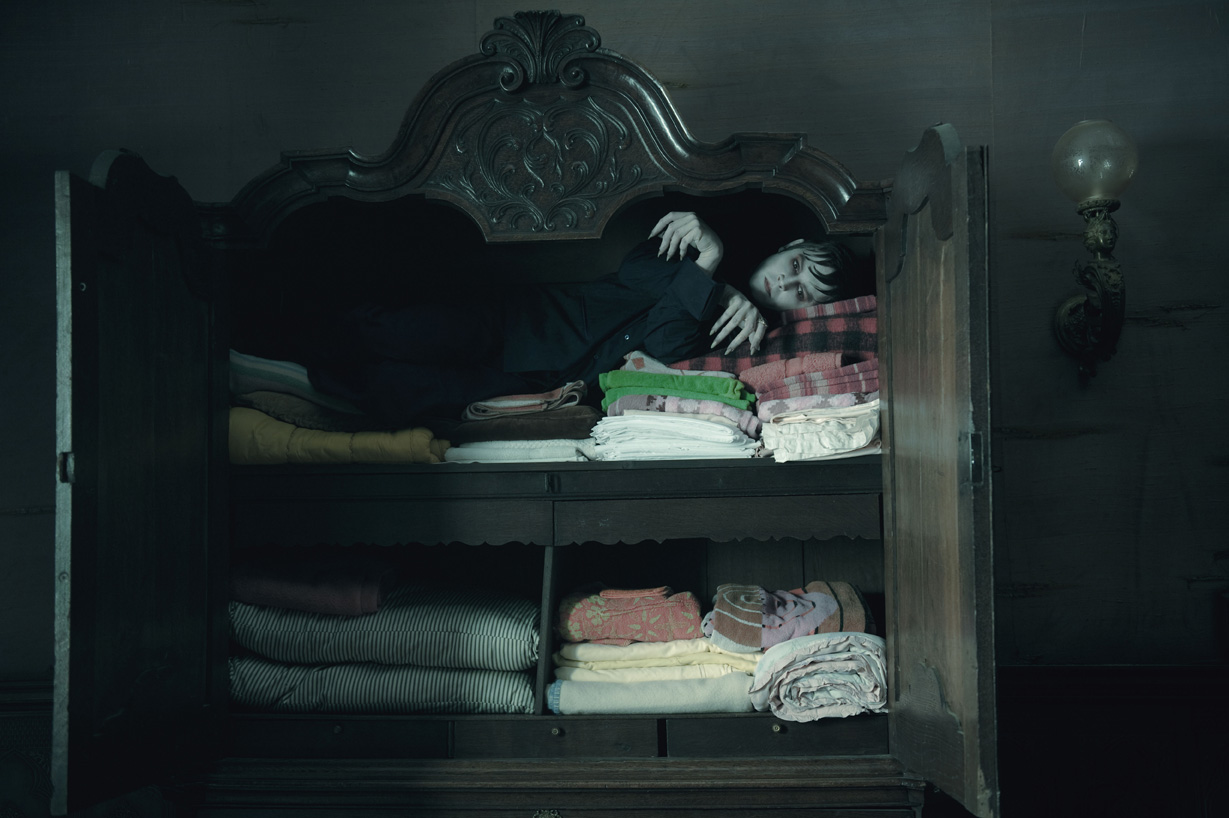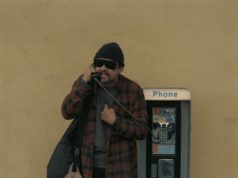It takes peculiar talent to make the Goth crowd laugh. Back in 1988, Tim Burton did just that with Beetlejuice, which marked him as a funnier version of the eyeliner-and-black-nail-polish morbid teenager in all of us. Now, having essayed a wide range of projects since then (some of them great films), his Dark Shadows feels like a return to his roots. While Burton clearly harbors much affection for the original oddball 1960s TV soap opera, he has used the big-screen version as an excuse to run his too-often suppressed macabre sense of humor to the top of the mast. This is a superb idea, one that should have resulted in a better movie than the one here.
A prologue takes place in pre-Revolutionary War America, where Barnabas Collins (Johnny Depp), a womanizing heir to a prosperous fishing business, falls afoul of Angelique (Eva Green), a possessive chambermaid and practicing witch. Seduced by him, she takes revenge on Barnabas by killing everyone he loves, turning him into a vampire via a curse, and burying him in a coffin until 1972, when a group of unfortunate construction workers dig him up. Returning to his ancestral home of Collinwood, Barnabas finds his few remaining descendants menaced by the selfsame Angelique, who runs a rival fishing business in the town of Collinsport, Me., and won’t rest until the Collinses are ruined.
On paper, this movie has everything going for it. On his first film writing credit, Pride and Prejudice and Zombies novelist Seth Grahame-Smith delights in writing rococo dialogue for the orotund Barnabas (“Goest thou straight to hell and let Asmodeus himself suckle at thy diseased teat!”) as well as some clever jokes: Seeing Alice Cooper (who cameos as himself) in concert, Barnabas sniffs, “Ugliest woman I’ve ever seen!” Like most of Burton’s films, this one is a glorious triumph of production design, with Rick Heinrichs and his team turning Collinwood into a treasure trove of bizarre architecture and gleefully mashing up the periods in the story. It’s both oddly appropriate and appropriately odd to see Barnabas in his 18th-century finery skulking through a shag-carpeted room lit by a lava lamp.
On top of that, the cast is game, too. Depp plays Barnabas’ torment and world-weariness straight up, but he never forgets to make the vampire a figure of fun, an Old World plutocrat befuddled by the groovy ’70s. Helena Bonham Carter brings an amusing disreputability to the role of a boozy, freeloading psychiatrist working for the Collinses, while Chloë Grace Moretz finds layers in the Collins’ 15-year-old daughter, a moody girl who shakes her teenage apathy just long enough to wonder what the deal is with her long-lost sunlight-hating relative. Brightest of all is Green, whose witchy role activates her demonic sense of play. Watch Angelique tempt Barnabas by grinning wickedly and sliding her ass across a piano keyboard, and you’ll know why he’s still attracted to her after everything she’s done to him.
With all this, why doesn’t the movie work better than it does? It’s a mess, but Burton’s films have never been about structural rigor, and an approach like his fits the material anyway. We can overlook the mess; the trouble is, it’s not a sufficiently entertaining mess. Too much screen time is given over to Victoria, the Collins’ new governess who just happens to look like Barnabas’ murdered fiancée. (Both women are played by Bella Heathcote, the latest in the line of pale-skinned, china-doll, sexless objects of platonic desire in Burton films.) The movie often loses track of her, along with everybody else, as the panoply of supporting characters proves too much for the filmmakers to handle. This effectively derails Grahame-Smith’s attempts to turn the film into a cracked ode to the bonds of family. During the Collins’ climactic showdown with Angelique in a burning Collinwood, dramatic revelations come out of nowhere and then are tossed aside just as quickly. Even though a tremendous amount of stuff happens, the sequence still moves at a glacial pace.
The movie has too much on its plate, in the end. The similarly messy Beetlejuice worked better as a straightforward romp that’s focused only on the next gag. Dark Shadows too often forgets the humor in its quest for gorgeous visuals and paying homage to the TV show. For all its felicities and jokes that hit home, the movie still leaves you cold. Yes, it takes peculiar talent to make the Goth crowd laugh, so peculiar that even Tim Burton can’t do it consistently.
[box_info]
Dark Shadows
Starring Johnny Depp and Eva Green. Directed by Tim Burton. Written by Seth Grahame-Smith, based on Dan Curtis’ TV show. Rated PG-13.
[/box_info]













Of course, this is your point of view only. For me it was not so. I liked the movie very much. The last two paragraphs are not true. This movie is very well made and the characters are well balanced.
Your review must be fussy otherwise you will not be interesting, but that does not mean to say false things. It is easy, however, because it is all a question of taste, these are not quantifiable things.